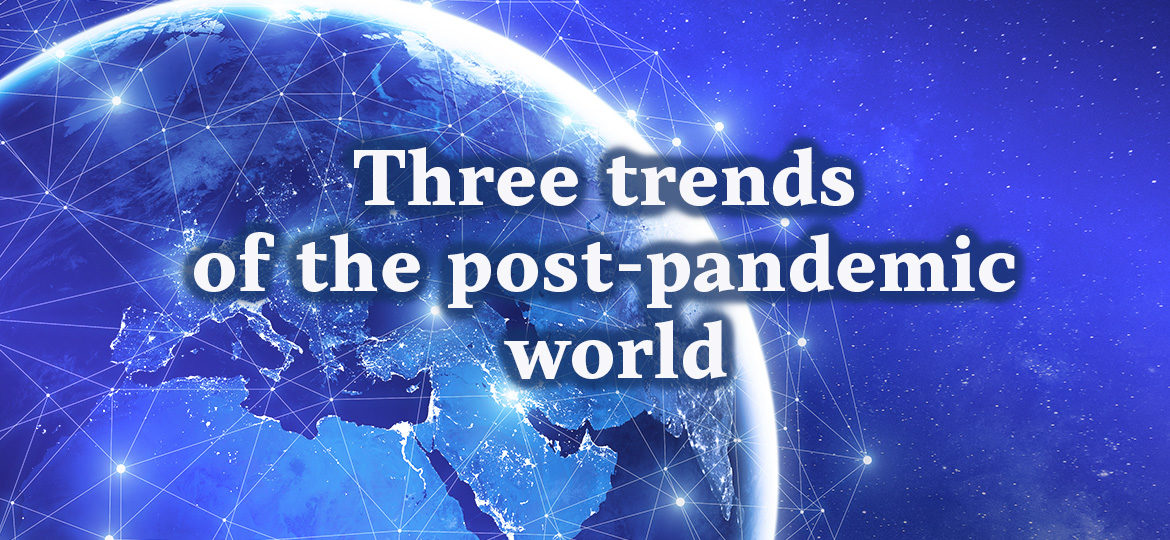
A responsible business owner will probably rely less on gut feeling and eerie revelations obtained during the meditative hours of self-isolation, and more on a sober analysis of actual trends. What are they?
Re-nationalisation and slowbalisation
The pandemics displayed limits of globalisation. Lockdown efforts compartmentalised large parts of the united Europe into better-bordered insulated states for an uncertain “while”. National governments invest in police forces and make huge debts in attempts to simultaneously save their economies by helping selected economic agents and prevent civil unrest. Even Scotland and Wales enforced policies preventing a Londoner to attend date in Edinburgh or Cardiff voluntarily. The world is becoming less free for moving, and there will be new rules engraved into it.
The international trade already showed signs of slowdown during the last decade, as well as profit shares of multinational companies. Foreign direct investment share of global GDP had fallen over the decade by almost three times.
Global trade will still shape the world economy. At the same time, many companies will re-establish critical parts of their supply chains within their national borders. Japanese manufacturers are the most vivid example, and they are leading this trend by moving parts manufacturing from China back to the islands.
Global communications market will receive a new dimension with StarLink satellites number reaching 422 late April (with an FCC permission for 42000 satellites in constellation issued earlier). The new global broadband may become operational later this autumn for the Northern hemisphere. These are not exciting news for traditional satellite communication companies.
Digital chains
The exposure of private life to government-backed controls will increase. The proliferation of smartphones opened the window for large surveillance schemes in many EU national states, and the UK. The problem of leaking real-time and aggregated private data to sinks of the digital black market has to be addressed on both domestic and international levels. The public is yet to receive a more detailed picture of the backside of digital communication technology.
More work from home
Twitter announced that its employees would never return to the office; everyone will work from home. Putting employees at remote desks is possible for a digital communication company. Still, it is not always an option for a manufacturer of physical goods or a logistics facility. How well your infrastructure is suited for remote work? How well your business processes wrapped with communication technology? The answer to both questions defines your competitive edge in post-pandemic economic reality. A better communication infrastructure will be in demand, and this is why 5G network coverage will inevitably come. Companies in the UK also deploy better fibre broadband across the country.
There is more to say about re-shaping trends of the future, and the world as we knew it at the end of 2019 will never be the same again after the end of 2020.
Oracle Capital Advisors is a UK-based consultancy company that helps clients to cut through uncertainty for a better future for their businesses.


